A video from the ROOTS-101 African American Museum in Louisville, Kentucky, has gone viral after it showed a white woman breaking down in tears while experiencing a simulation of enslaved Blacks arriving in America.
Museum founder Lamont Collins placed a heavy set of shackles on the visitor and said, “Welcome to America,” prompting an emotional reaction.
The moment has sparked both praise and criticism online, igniting conversations about empathy, privilege, and the weight of history.
The viral museum moment spread like wildfire across numerous social media platforms
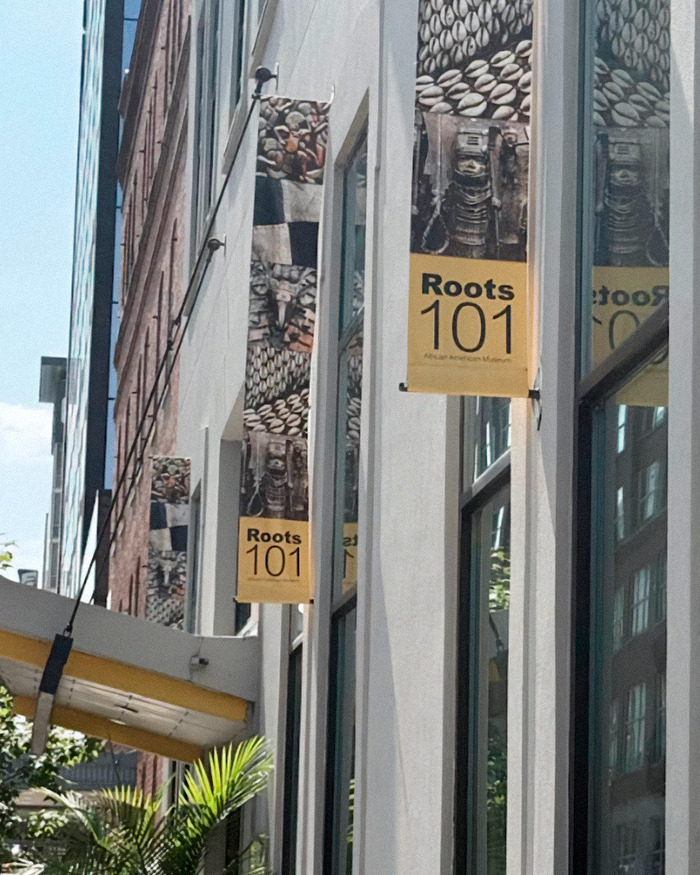
Image credits: Karen Renata/Google Maps
Collins, the museum’s CEO and founder, can be seen placing shackles on the woman’s wrists on the video. As the weight of the metal shackles dropped down on the woman’s wrists, her entire body leaned forward.
“Welcome to America,” he said.
Collins then asked her to share what she was thinking. Through tears, the woman replied, “Just so much.” He quickly called for tissues, saying, “Kleenex, please.”
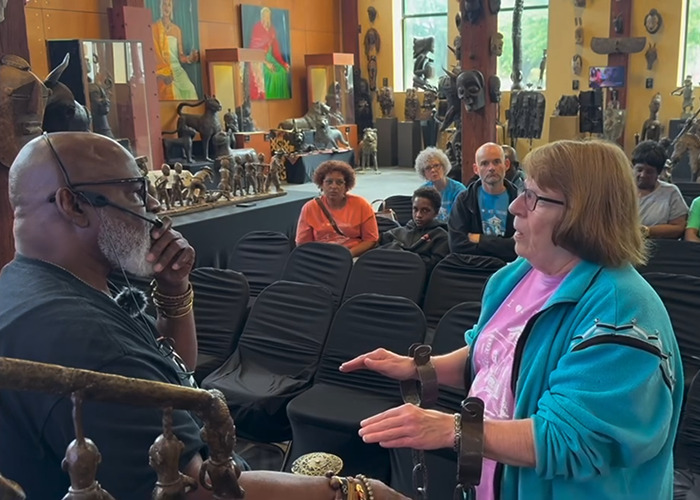
Image credits: roots101aam
The visitor explained that she had “always been interested in the history of Black people,” adding that her family has been close to the Black community for years.
“I’ve read so many books, and now I belong to a church that’s primarily African American, and I wouldn’t be anywhere else,” the woman said before walking away.
Collins ended the interaction by responding, “Beautiful, thank you.”
The story behind ROOTS-101 started with an autograph of boxing legend Muhammad Ali

ROOTS-101 African American Museum was founded in 2020 by Collins, who has described its mission as giving visitors a chance to “see themselves in history” and understand the broader story of African American life.
The museum’s exhibits focus on resilience, creativity, and cultural contributions, and it aims to create a space for reflection and connection, according to ROOTS-101’s official website.

Collins, now 67, has been deeply involved in preserving Black history since childhood, when his mother gave him Muhammad Ali’s autograph. That gift sparked a lifelong passion for collecting artifacts that tell the story of Black culture.
A former University of Louisville football player, Collins has built the museum into a cultural destination for immersive storytelling.
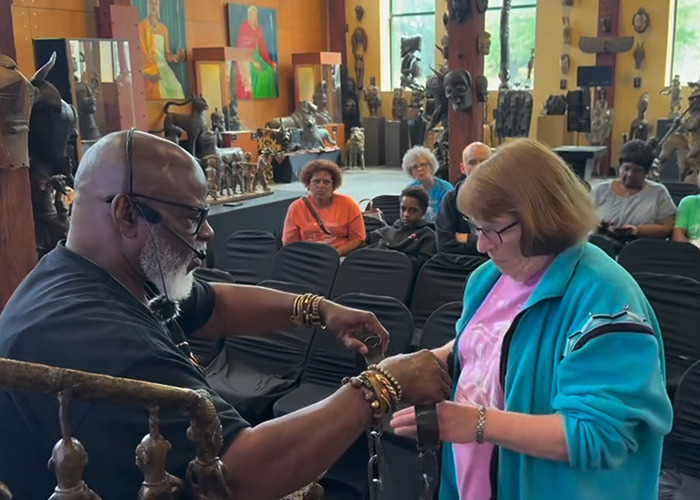
Image credits: roots101aam
This is one of the reasons why ROOTS-101’s mission is to “promote understanding & inspire appreciation of the achievements, contributions, and experiences of African Americans.”
The museum is aiming to achieve this goal using “exhibits, programs, and activities to illustrate African-American history, culture, and art.”
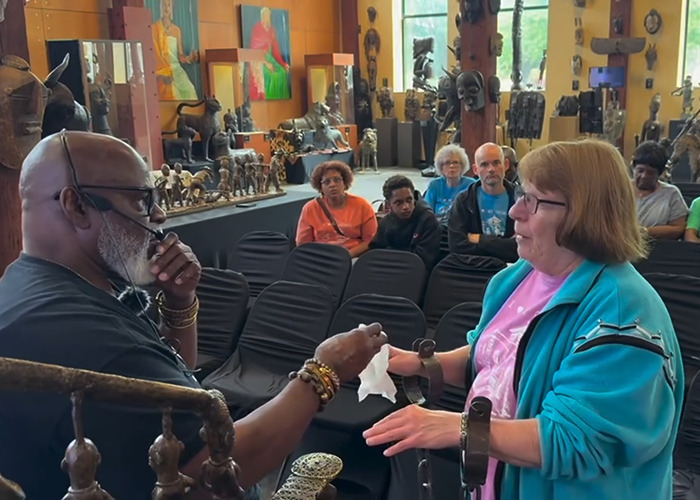
Image credits: roots101aam
“As the architect of Roots 101, Lamont’s magnetic storytelling weaves history into a compelling narrative, making the museum a hidden treasure that attracts visitors worldwide,” the museum’s website reads.
The woman’s tearful reaction to the shackle simulation received polarizing reactions online
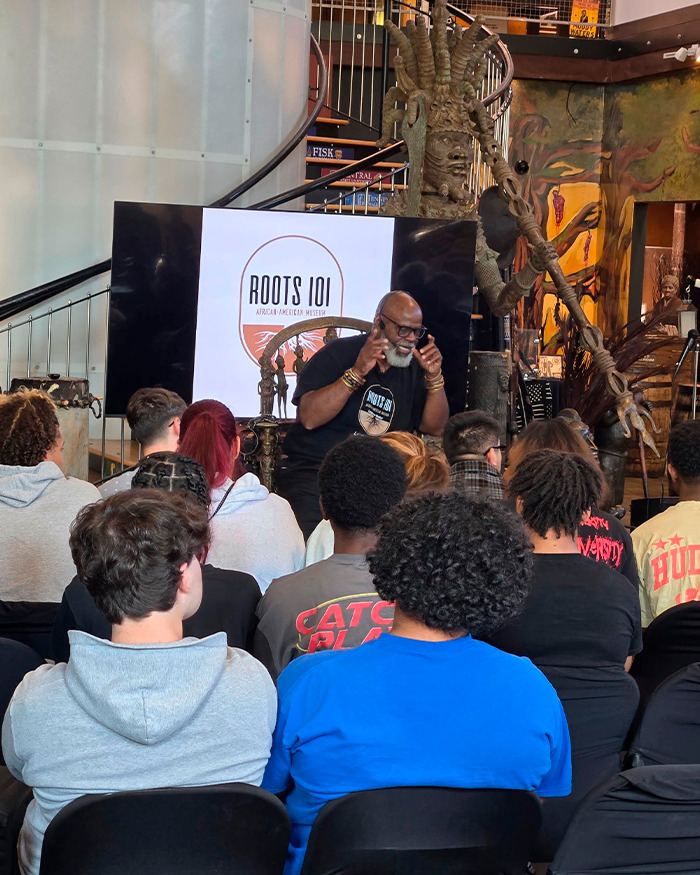
Image credits: Roots101: African American Museum/Facebook
Some netizens praised the museum’s exercise for its raw emotional impact. Others felt it went too far as it became performative, while others argued that it didn’t go far enough.
This was highlighted by comments to the viral video across numerous social media platforms.
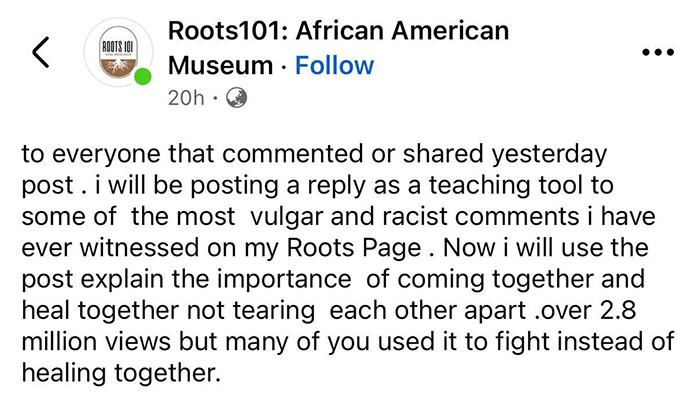
Image credits: Roots101: African American Museum/Facebook
“White people like this are so funny cause you know they heart ain’t bad but they dramatic asf,” one person wrote.
Another saw value in the experience: “People are not truly going to understand the generational trauma until they experience an assimilated version of what our ancestors went through… It was so incredibly powerful that it felt as though it was happening within the moment.”
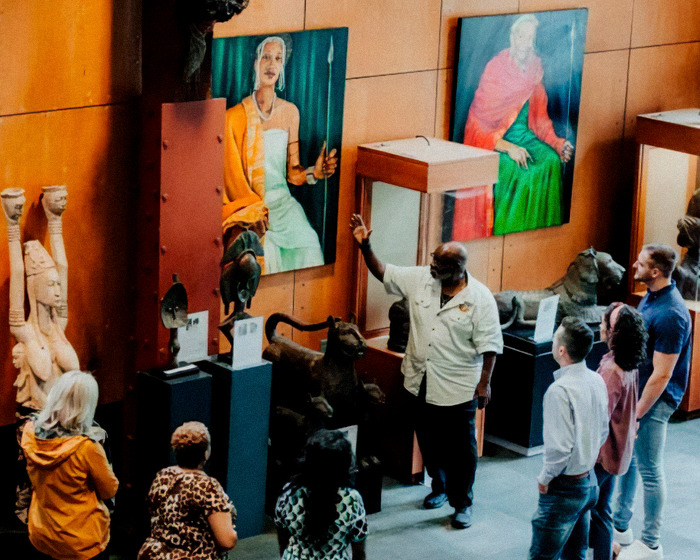
Image credits: Roots 101 African American Museum
For others, the physicality of the moment revealed something books could not.
“This somehow showed more viscerally how heavy those chains are than anything I’ve ever watched or read about … the moment you let go of those shackles, my heart felt how heavy they were,” the commenter stated.
Critics, however, pushed back. “I’m sorry, but she can never and will never truly understand the things Black people went through and still go through … Some tears ain’t gonna cut it,” another noted.
Others also argued that the exercise risked distortion: “Slavery was bad we can all agree. And we must do well to try and understand what people went through — but don’t take that upon you like it’s yours — that’s a one-way ticket to living as a victim,” one commenter argued.
Netizens shared their thoughts on the white woman’s viral tearful reaction to simulated slave chains on social media

Image credits: doewards

Image credits: poppyalexander

Image credits: DarkSkinPrue

Image credits: Muni4evs

Image credits: triggamontana_
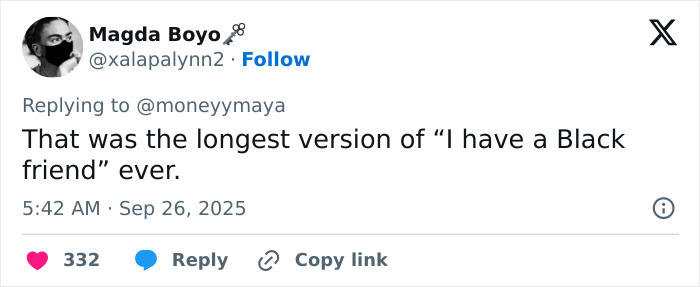
Image credits: xalapalynn2
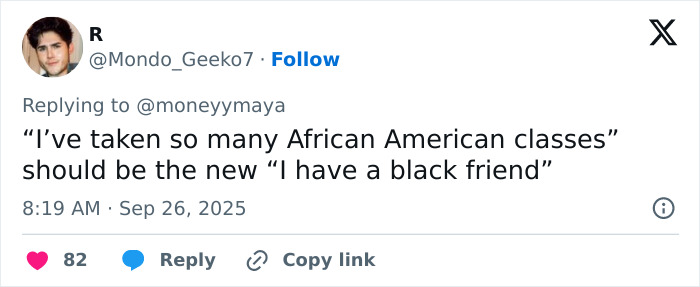
Image credits: Mondo_Geeko7

Image credits: kiathegem

Image credits: Santanaca21
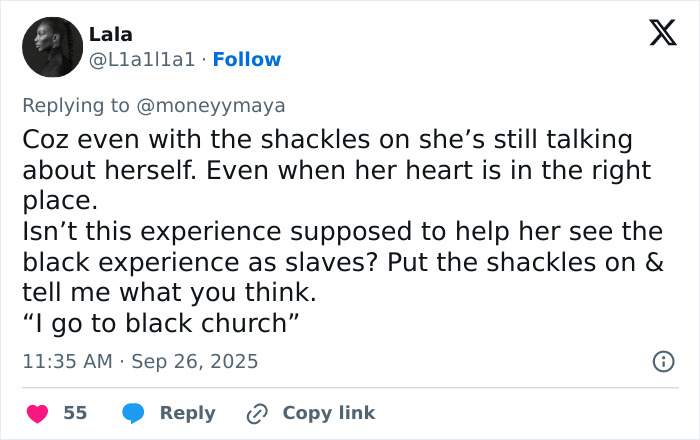
Image credits: L1a1l1a1
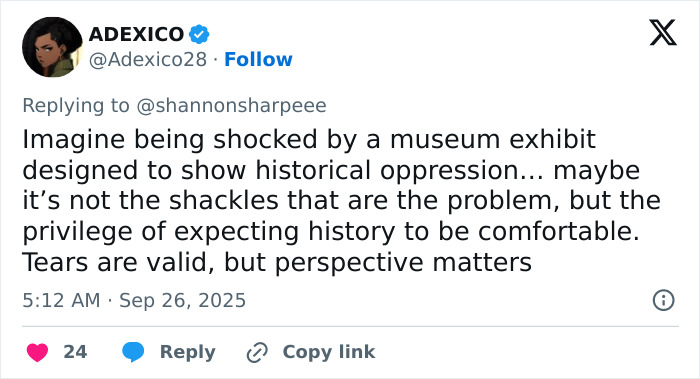
Image credits: Adexico28
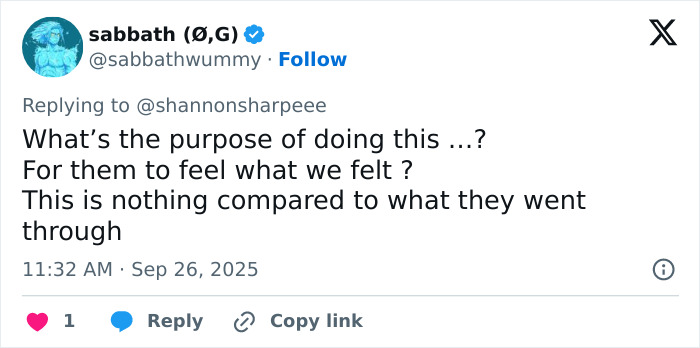
Image credits: sabbathwummy
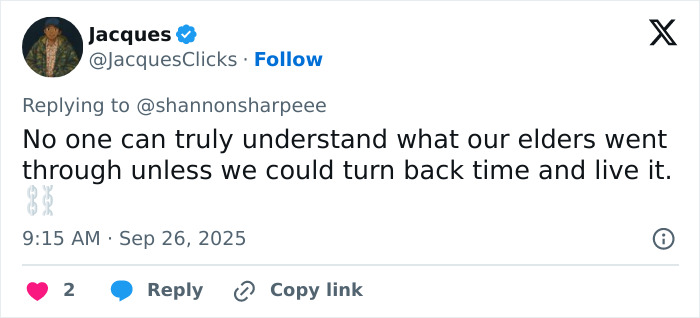
Image credits: JacquesClicks

Image credits: KosiOkorie
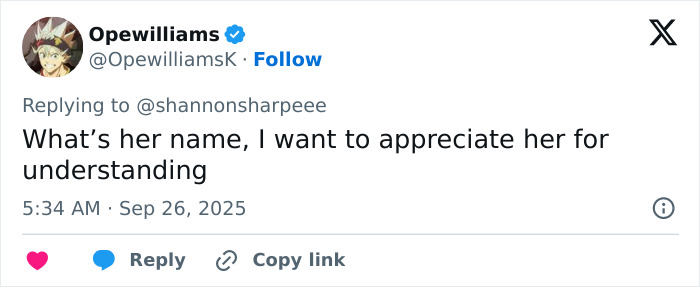
Image credits: OpewilliamsK

Image credits: iComma23

Image credits: dp00077
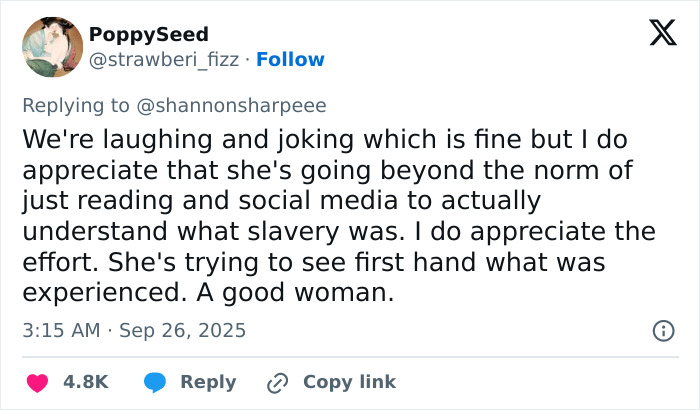
Image credits: strawberi_fizz

Image credits: iamprofessorex
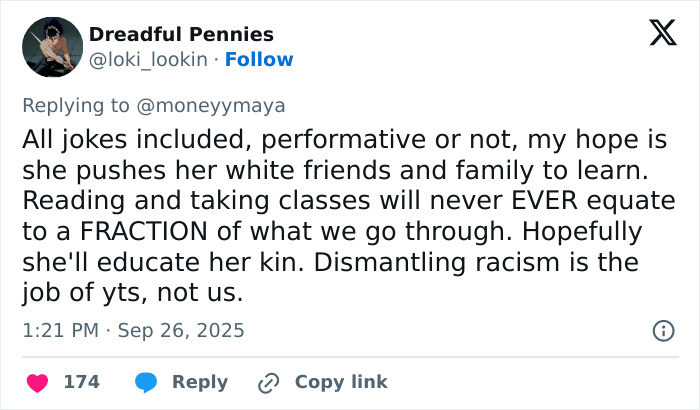
Image credits: loki_lookin
 Follow Us
Follow Us





